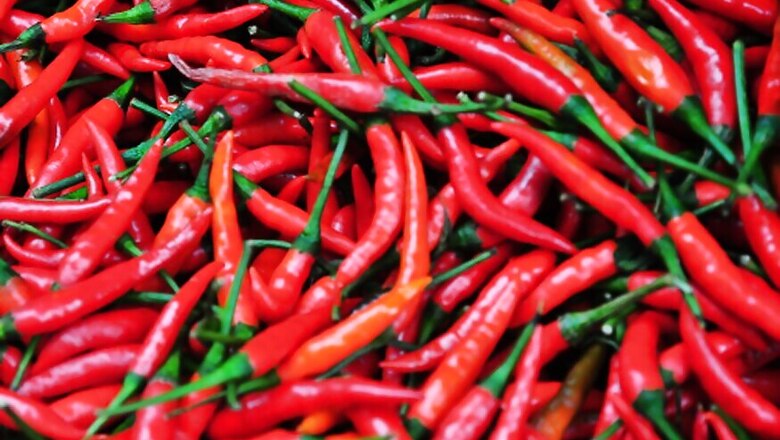
views
Good news for spicy food fans, with new research suggesting that as well as giving a hit of heat to your food, chili peppers could also help you live longer.
Carried out by researchers from the Larner College of Medicine at the University of Vermont, the new study used data from the National Health and Nutritional Examination Survey (NHANES) III, to look at 16,179 participants at least 18 years of age, who were followed for up to 23 years.
The researchers used the information to assess the characteristics of the participants according to their consumption of hot red chili peppers.
Although peppers and spices have been thought to be beneficial for health for centuries, studies on the ingredients are limited.
As only one other study -- which was conducted in China and published in 2015 -- has previously looked at a possible association between chili pepper consumption and mortality, the researchers wanted to find further evidence to support the link in their own study.
They found that those who ate more of the spicy ingredient tended to be "younger, male, white, Mexican-American, married, and to smoke cigarettes, drink alcohol, and consume more vegetables and meats . . . had lower HDL-cholesterol, lower income, and less education," in comparison to participants who did not consume red chili peppers.
They also found that the participants who consumed hot red chili peppers benefited from a 13 percent reduction in risk of death, mainly thanks to a reduction in deaths related to heart disease or stroke.
It is as yet unclear what is causing the positive association between chili peppers and life expectancy, however the researchers put forward the suggestion that it could be the principal component in chili peppers, capsicum. Capsicum is believed to play a role in the mechanisms that prevent obesity, modulate coronary blood flow, and also has antimicrobial properties that "may indirectly affect the host by altering the gut microbiota" with changes in bacterial composition linked to cardiovascular disease amongst other conditions.
The nutrients in hot red chili peppers such as B-vitamins, vitamin C and pro-A vitamin could also partly account for its protective effect.
The team now suggest that red chili peppers "may be a beneficial component of the diet" and that further research in the form of clinical trials should be carried out.
The results can be found published online in the journal PLoS ONE.














Comments
0 comment